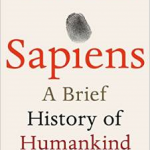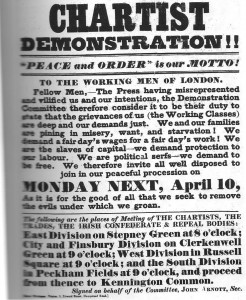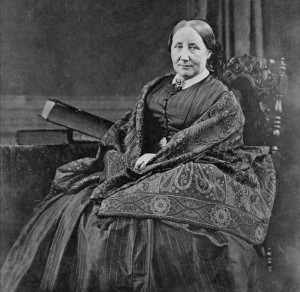A new review is now up on this page of an extraordinary new book that turns Buddhism on its head using rigorous historical scholarship. Beckwith argues that the Buddha taught the Middle Way, not the other elements that have become associated with Buddhism such as the 4 Noble Truths, karma or nirvana. He argues that the Pali Canon is not a reliable source on early Buddhism, but bases his account on a variety of other sources: Greek, Chinese and Persian texts and Indian rock edicts. Though the Middle Way does not depend for its helpfulness on any historical source, this book will nevertheless be of much interest to anyone who is approaching the Middle Way via Buddhism.
Beckwith argues that the Buddha taught the Middle Way, not the other elements that have become associated with Buddhism such as the 4 Noble Truths, karma or nirvana. He argues that the Pali Canon is not a reliable source on early Buddhism, but bases his account on a variety of other sources: Greek, Chinese and Persian texts and Indian rock edicts. Though the Middle Way does not depend for its helpfulness on any historical source, this book will nevertheless be of much interest to anyone who is approaching the Middle Way via Buddhism.
Category Archives: History
New review: Sapiens
Click here to read a new review on the site, of ‘Sapiens’ by Yuval Noah Hariri (reviewed by Robert M Ellis). This is a ‘big’ history of the whole of human life that can help make us aware of a wide range of conditions.
site, of ‘Sapiens’ by Yuval Noah Hariri (reviewed by Robert M Ellis). This is a ‘big’ history of the whole of human life that can help make us aware of a wide range of conditions.
From Conflict to Integration – Social Change in 19th Century Britain
 The industrial revolution of Britain was not just technological in character– there was also massive social and political upheaval, of which we are still engaged in today. I have selected several examples to try and argue that this era provides a vivid example of how the integration of desires and beliefs can not only be of significant benefit to society as a whole, but provides the most effective framework from which to navigate seemingly incompatible ideas. This is written from my own, British, perspective and as such is focused on British politics and history, however I suspect that these events had significant consequences around the world and I am also sure that similar examples could easily be found in other societies. I will refer here to several individuals and ideologies, narrowly focusing on specific features; in no way do I intend to provide a full representation of any of them. Figures such as Adam Smith and were hugely influential for many reasons – of which several volumes could be written. Having said that, I sincerely hope that I have not misrepresented any individual or event in my brief summary of the economic conditions, social issues, and ideologies that have lead – in large part – to the world that we live in today.
The industrial revolution of Britain was not just technological in character– there was also massive social and political upheaval, of which we are still engaged in today. I have selected several examples to try and argue that this era provides a vivid example of how the integration of desires and beliefs can not only be of significant benefit to society as a whole, but provides the most effective framework from which to navigate seemingly incompatible ideas. This is written from my own, British, perspective and as such is focused on British politics and history, however I suspect that these events had significant consequences around the world and I am also sure that similar examples could easily be found in other societies. I will refer here to several individuals and ideologies, narrowly focusing on specific features; in no way do I intend to provide a full representation of any of them. Figures such as Adam Smith and were hugely influential for many reasons – of which several volumes could be written. Having said that, I sincerely hope that I have not misrepresented any individual or event in my brief summary of the economic conditions, social issues, and ideologies that have lead – in large part – to the world that we live in today.
Clearly, there has been much social and political conflict throughout the history of the British Isles, but the basic Norman social structure – of a strict hierarchical pyramid, with the vast majority at the very bottom with little concept of social mobility – survived, for centuries, in one form or another – with little significant change for the majority of the population. Then, as technology rapidly changed throughout the late 18th and early 19th century, so did the living and working conditions of much of the working population, as they moved in ever increasing numbers to simultaneously spectacular and monstrous industrialized cities, such as Manchester – whose population had increased threefold during the first half of the 19th Century. Life had never been easy for those living in the murky, parasite ridden depths of society. Yet, with severe overcrowding, increased disease and dangerous, perpetually uncertain working conditions, things must have felt as if they were worse than they had ever been – a feeling that would only have been magnified by gazing, in a rare moment of free time, at the lucky people bathing in the rapidly improving, but ultimately out of reach shallows.
Those merchants, manufacturers, professionals and political classes were not blind to the suffering of their less fortunate contemporaries – and nor were they entirely unsympathetic. However, while in 21st Century Britain, I can’t help but find the general consensus for solutions, and the subsequent treatment of the labouring classes, callous and barbaric – at that time most of the people that could make a difference believed that not actively alleviating suffering was the kindest – and indeed, only legitimate – course of action. During the first half of the 19th Century it was widely believed that economic conditions should be allowed to operate freely, without restriction. This extended to fluctuations in wages and job availability – if the market demanded that wages drop, or a large proportion of the work force be laid off, then employers must be allowed to act accordingly. The belief seemed to be that, left unmolested – and pursued for ones own individual benefit – the rapid rise in manufacture and the massive profits that this generated would not only benefit the individual, but, eventually, the whole of society too. Any suffering caused along the way was regarded as unfortunate but necessary ‘collateral damage’. Displays of undue compassion and generosity might temporarily alleviate some suffering, but the collapse in the market which would surely follow would be a disaster: causing misery and suffering for an even greater number of people.
These economic ideas (which I think form part of Classical Liberal Economics) were inspired by earlier thinkers such as Adam Smith, who seemed to believe that a free market operated under the influence of absolute natural laws which were themselves regulated by a metaphysical ‘invisible hand’. Other ideas were being formed during this period, and chief among these were those of Friedrich Engels and Karl Marx. I’m not sure that either of these men disputed the claims of liberal economists, but it is clear that they anticipated a much different outcome. After visiting Manchester in 1842, and being deeply affected by what he saw, Engels first developed his ideas – of which one was the perceived inevitability of the working class rising up in violent revolution and consequently replacing the capitalist system with a new fairer, socialist society. In the following years Engels and Marx would greatly develop this idea and, as serious and violent attempts at revolution swept across the rest of Europe in 1848, they must have felt that they were right. These revolutions were not directly influenced by the writings of Marx and Engels (who probably exerted their greatest influence during the 20th century), there were probably many causes, often specific to different areas of Europe. Nevertheless, the desire for greater equality and political reform seems to have been a common theme and this often manifested in a demand for universal suffrage (although this did not yet include Women).
The events in Europe were not spontaneous; the turbulence was manifest in the decades leading up to this wave of disruption and Britain was no exception: from the Peterloo Massacre of 1819, to the action conducted and influenced by the Chartists between 1838 and 1850. The  Chartists, who sought universal suffrage and the improvement of working and living conditions, not only inspired and encouraged industrial action but also published the Peoples Charter, which consisted of six primary demands for political change and yet despite their popularity with the working classes, and the disruption that they inspired – they were largely ignored by the political and industrial elite, considered only as a mere nuisance. In 1848, although there had been several Factory Acts, that had legislated many improvements on working conditions (especially for women and children), there was little change to the social and economic structure; there was no revolution and the Chartists had failed – condemned to limp ineffectively along before disbanding two years later.
Chartists, who sought universal suffrage and the improvement of working and living conditions, not only inspired and encouraged industrial action but also published the Peoples Charter, which consisted of six primary demands for political change and yet despite their popularity with the working classes, and the disruption that they inspired – they were largely ignored by the political and industrial elite, considered only as a mere nuisance. In 1848, although there had been several Factory Acts, that had legislated many improvements on working conditions (especially for women and children), there was little change to the social and economic structure; there was no revolution and the Chartists had failed – condemned to limp ineffectively along before disbanding two years later.
So what did happen and how does this all relate to the Middle Way? With the violence and turmoil erupting over the channel, the obvious suffering of a great number of people on this side of the water, and the signs of growing impatience from the labourers (who’s efforts formed the unwashed foundations of the wealth of the few) – many, from the circles of society that could make an actual difference, began to question the status-quo. There have been philanthropists and socially conscious do-gooders throughout history – with evangelical Christians and Quakers, whose efforts may have helped to inspire the thoughts of others, deserving special mention during this period of British history. However, it was only as ideas of altruism came from wider sources that real change began to occur.
Philosophers, such as Jeremy Bentham and John Stuart Mill (who has featured in Robert M Ellis’s ‘Middle Way Thinkers’ series) were both early proponents of, what seems to me to be, an extreme free-market system – yet both became important critics who argued for increased state intervention and rights for workers (As an aside, Bentham had always been opposed to Smiths idea of natural laws governing economic systems). Additionally, writers such as Charles Dickens and Elizabeth Gaskell were also increasingly outspoken about social conditions, both in their writings and – especially in Dickens case – their public engagements. As the voices of dissent, from the mouths and pens of so called reputable sources, increased, so did the interest of parliament – after all, these voices actually had a vote. Consequently, some politicians began to wonder if technological/ economic progress couldn’t also be conducted with, what we would call today, a social conscience – which would not just benefit the hypothetical population of a utopian future, but also the very population that were toiling relentlessly to make such progress possible at all.
about social conditions, both in their writings and – especially in Dickens case – their public engagements. As the voices of dissent, from the mouths and pens of so called reputable sources, increased, so did the interest of parliament – after all, these voices actually had a vote. Consequently, some politicians began to wonder if technological/ economic progress couldn’t also be conducted with, what we would call today, a social conscience – which would not just benefit the hypothetical population of a utopian future, but also the very population that were toiling relentlessly to make such progress possible at all.
Parliament fiercely debated these issues and what began to emerge, as a continuation of the earlier factory acts, was an integration of competing desires. Starting from accepted economic dogma, having also considered the possibility of total and violent social revolution, and musing over the possibility of altruistic policy, a series of reforms continued to increase the electoral franchise and improve the living and working conditions of the previously unheard majority – with the development of universally available civic amenities, such as public libraries. The European social revolutions of the 19th century were largely unsuccessful, with things returning to much as they were before – perhaps even worse, and the economic and industrial systems did not collapse with the increase of certain state interventions. That is not to say that the suffering stopped, we are still navigating through these extremes and sometimes veer a little to close to the edge, yet we have so far steered the ship in a largely progressive and beneficial direction – things in Britain are much better than in the 19th Century and I am confident that we will continue precariously in this direction.
In many parts of the world, however, these issues are painfully relevant and it appears that the free-market is pursued at the tragic expense of a silent majority. Perhaps, given time, this system will provide significant benefits for all involved, but is the suffering of today worth the prize? I don’t think so, but nor do I wish for a radical overthrow of the whole system. Of the six demands made by the Chartists, and ignored by everybody that could have made a difference at the time, five have since been passed as law (and in fact society has gone much further, with the rights of women to vote as one important example). If those in power had not been so enamoured with a dogmatic status-quo and had been willing to consider the views of those that opposed it, these reforms might have happened not only sooner, but more rapidly.
I also believe there are lessons here for the leaders of multi national corporations and the leaders of the (rapidly) developing nations – if better working conditions did not cause the collapse of the Victorian economy, then why should it theirs? It is easy to feel helpless when faced with the plight of many of our international neighbours, but as individuals and consumers we can make choices; like the manufacturers and merchants of the 19th century, it is us that now benefit from the suffering of others. Perhaps by making the right kinds of choices we can play a small part in encouraging, not a radical overthrow of the system – but the nurturing of a Middle Way where profits can still be made and, more importantly, social conditions can be wilfully improved. Of course the political leaders of the more economically developed nations can also exert an obvious influence too.
Another lesson that I see here is this: as voters and participants in the political system, we should use our hard won privileges to ensure that domestic politics does not fall into a stagnant status-quo. I am deeply suspicious of the so called ‘centre ground’ – which is sold to us as a kind of Middle Way: not too far right and not too far left. As our politicians all scrabble around for this goldilocks politics, those who do not conform are pushed out of the system and as parliament appears increasingly bland, people are, understandably, attracted to the voices calling from the peripheries – these are often unpalatable, but others (as I think the Chartists were) might be making important and useful points. It is not the job of parliament to tell us where the centre is, it is the job of parliament to take a representative selection of views – often seemingly diametrically opposed – and navigate it’s way between them.
If a more explicit Middle Way approach had been employed in the eighteen-hundreds then perhaps progress would have been sooner in coming, we may never know, but we can try to apply the Middle Way to contemporary issues at home and further away. However, as with politics, we should not expect to find some mythical centre; rather we should navigate through the extremes as best we can.
Images courtesy of Wikimedia Commons
The Trouble with Revisionism
Almost everything we do is in some way an attempt to improve on what went before. Even tidying up a room involves what we see as an improvement on its previous state. When we consider traditions of human thought and activity, too, each new development of a tradition tries to address a new condition of some kind and thus also remedy a defect: for example, the Reformation was a response to dogmatic limitations and perceived abuses in the Catholic church, and new artistic movements respond to what they see as the aesthetic limitations of the previous movements that inspired them.
In many ways, then, its not surprising that both individuals and groups gradually evolve new ways of doing things in response to past tradition or custom. What creates a problem, though, is when we essentialise that tradition and try to appropriate its whole moral weight to justify our current approach: believing that we have found the ultimately right solution, the true answer, or the ultimately correct interpretation of that tradition. When we do that, we’re not just contributing to a new development that we acknowledge to be different from what went before, but also imposing that development on the past. In effect, we’re projecting the present onto the past.  This is an approach to things for which ‘revisionism’ seems to be a good label, though it’s most typically been used for those who more formally impose their preconceptions on the interpretation of history, such as holocaust deniers. This photo shows such revisionism in action in the Soviet Union: the executed commissar Yezhov removed from a photo featuring Stalin.
This is an approach to things for which ‘revisionism’ seems to be a good label, though it’s most typically been used for those who more formally impose their preconceptions on the interpretation of history, such as holocaust deniers. This photo shows such revisionism in action in the Soviet Union: the executed commissar Yezhov removed from a photo featuring Stalin.
In a sense, we’re all revisionists to some degree, since this tendency to appropriate and essentialise the past is wrapped up in common fallacies and cognitive biases that we might all slip into. We’re especially likely to do this when considering our own past, for example underestimating the extent to which our mature experience differs from our youth and projecting the benefit of hindsight onto our judgements in the past. In working on my next book Middle Way Philosophy 4: The Integration of Belief, I’ve been thinking a lot about these cognitive biases around time recently. There are many concerned with the present and the future, or with non-specific times, as well as the past, so I won’t try to discuss them all, but just a couple that focus particularly on the past.
In terms of Critical Thinking, the fallacy of absolutising the past is equivalent to the Irrelevant Appeal to History or Irrelevant Appeal to Tradition. This is when someone assumes that because something was the case in the past that necessarily makes it true or justified now. Simple examples might be “We haven’t admitted women to the club in the hundred years of our existence – we can’t start now! It would undermine everything we stand for!” Or “When we go to the pub we always take turns to pay for a round of drinks. When it’s your round you have to pay – it’s as simple as that.”
A common cognitive bias that works on the same basis is the Sunk Cost Fallacy, which Daniel Kahneman writes about. When we’ve put a lot of time, effort, or money into something, even if it’s not achieving what we hoped, we are very reluctant to let go of it. Companies who have invested money in big projects that turn out to have big cost overruns and diminishing prospects of return will nevertheless often pursue them, sending “good money after bad”. The massively expensive Concorde project in the 1970’s is a classic example of governments also doing this. But as individuals we also have an identifiable tendency to fail to let go of things we’ve invested in: whether it’s houses, relationships, books or business ventures. The Sunk Cost Fallacy involves an absolutisation of what we have done in the past, so that we fail to compare it fairly to new evidence in the present. In effect, we also revise our understanding of the present so that it fits our unexamined assumptions about the value of events in the past.
I think the Sunk Cost Fallacy also figures in revisionist attitudes to religious, philosophical and moral traditions. It’s highly understandable, perhaps, that if you’ve sunk a large portion of your life into the culture, symbolism and social context of a particular religious tradition, for example, but then you encounter a lot of conflicts between the assumptions that dominate that tradition and the conditions that need to be addressed in the present, there is going to be a strong temptation to try to revise that tradition rather than to abandon it. Since that tradition provides a lot of our meaning – our vocabulary and a whole set of ways of symbolising and conceptualising – it’s clear that we cannot just abandon what that tradition means to us. We can acknowledge that, but at the same time I think we need to resist the revisionist impulse that is likely to accompany it. The use and gradual adaptation of meaning from past traditions doesn’t have to be accompanied by claims that we have a new, true, or correct interpretation of that tradition. Instead we should just try to admit that we have a new perspective, influenced by past traditions but basically an attempt to respond to new circumstances.
That, at any rate, is what I have been trying to do with Middle Way Philosophy. I acknowledge my debt to Buddhism, as well as Christianity and various other Western traditions of thought. However, I try not to slip into the claim that I have the correct or true interpretation of any of these traditions, or indeed the true message of their founders. For example, I have a view about the most useful interpretation of the Buddha’s Middle Way – one that I think Buddhists would be wise to adopt to gain the practical benefits of the Buddha’s insights. However, I don’t claim to know what the Buddha ‘really meant’ or to have my finger on ‘true Buddhism’. Instead, all beliefs need to be judged in terms of their practical adequacy to present circumstances.
This approach also accounts for the measure of disagreement I have had with three recent contributors to our podcasts: Stephen Batchelor, Don Cupitt and Mark Vernon. I wouldn’t want to exaggerate that degree of disagreement, as our roads lie together for many miles. and in each case I think that dialogue with the society and exploration of the relationship of their ideas to the Middle Way has been, and may continue to be, fruitful. However, it seems to me on the evidence available that Batchelor, Cupitt and Vernon each want to adopt revisionist views of the Buddha, Jesus and Plato respectively. I’m not saying that any of those revisionist views are necessarily wrong, but only that I think it’s a mistake to rely on a reassessment of a highly ambiguous and debatable past as a starting-point for developing an adequate response to present conditions. In each case, we may find elements of inspiration or insight in the ‘revised’ views – but please let’s try to let go of the belief that ‘what they really meant’ is in any sense a useful thing to try to establish. In the end, this attachment to ‘what they really meant’ seems to be largely an indicator of sunk costs on our part.
The MWS Podcast: Episode 24, Paul Teed on the study of history
In this latest member profile, Paul Teed a professor of history at Saginaw Valley State University tells us why he joined the society, what history means to him and why it matters. We also discuss objectivity, how to critically assess history, what he thinks of the film ‘12 years a slave’, the importance of ‘telling a story’ and how all this relates to his understanding of the Middle Way.
MWS Podcast 24: Paul Teed as audio only:
Download audio: MWS_Podcast_24_Paul_Teed
